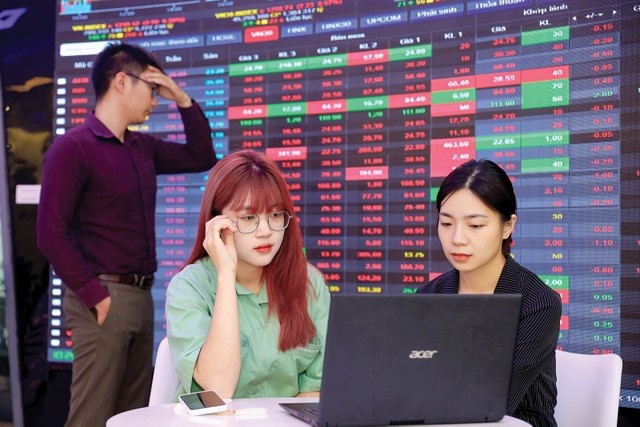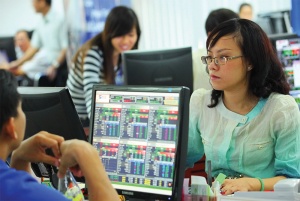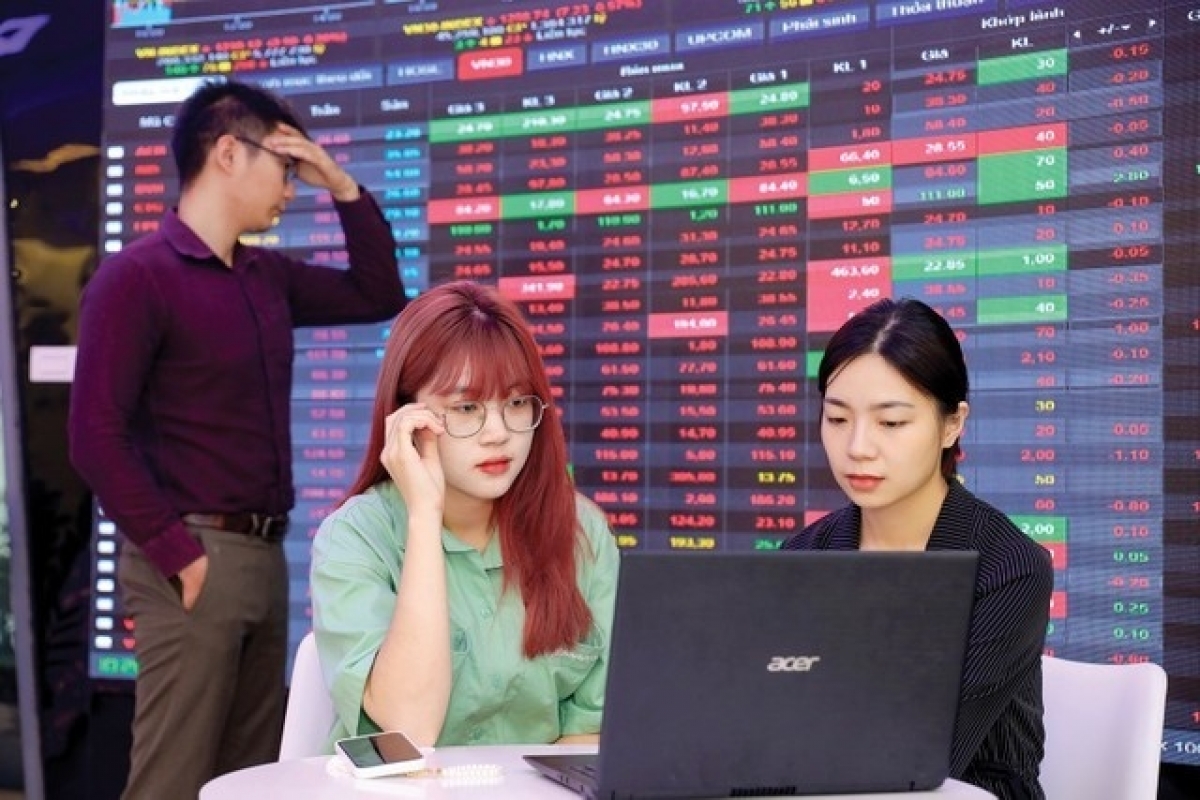On September 17, the Federal Reserve announced it was cutting interest rates by 0.25 per cent per annum.

Since the beginning of the year, the VND has been under consistent devaluation pressure, while many regional currencies have shown appreciation against the US dollar.
“The Fed’s prolonged high interest rate policy has significantly affected the actual foreign currency inflow into Vietnam. Therefore, this recent rate cut serves to defer part of the exchange rate pressure to the end of the year. Along with an expected improvement in dollar supply in the upcoming months, this will enable the State Bank of Vietnam (SBV) to better manage foreign currency demand and exchange rate pressures,” said Nguyen Thanh Lam, director of retail client research at Maybank Investment Bank Vietnam.
He noted that the Fed’s 25-basis-point cut, though modest and largely anticipated by the market, carries meaningful implications for Vietnam’s exchange rate outlook. First, it aligns with the policy direction of domestic regulators. Second, it may begin to reverse the trend of dollar hoarding.
“We believe that once the Fed’s interest rates fall below 3 per cent per annum, many investors and institutions will decide to repatriate USD back to Vietnam for business purposes. This could rapidly improve the dollar supply, providing the SBV with an opportunity to rebuild foreign exchange reserves and manage market expectations more effectively,” Lam said.
Last week, Minister of Finance Nguyen Van Thang led a delegation from the Ministry of Finance on a working trip to the London Stock Exchange and FTSE Russell.
During the visit, the Vietnam Stock Exchange (VNX) signed an MoU with FTSE International Limited, establishing a strategic cooperation framework aimed at enhancing Vietnam’s capital market infrastructure and promoting international integration.
Chairwoman of the Vietnam State Securities Commission (SSC), Vu Thi Chan Phuong, also held a direct meeting with FTSE Russell to discuss matters related to Vietnam’s market upgrade.
Thanks to the government’s ongoing efforts, Vietnam’s stock market has now met all criteria for emerging market classification under FTSE Russell’s standards. Many market participants are optimistic that this upgrade could be realised in the upcoming review scheduled for early October.
Nguyen The Minh, head of research and development at Yuanta Vietnam Securities, stated that market upgrades often generate short-term positive effects, but over the longer term, the market’s performance will still depend on multiple factors.
“Specific developments will be shaped by macroeconomic conditions such as monetary policy, oil prices, geopolitical volatility, and internal fundamentals. A positive signal at this stage is the Fed’s decision to lower interest rates after a prolonged period of tightening, which could act as a supportive factor for Vietnam’s market upgrade story,” Minh commented.
Foreign ownership in Vietnam’s stock market has fallen to 12 per cent, calculated as the number of shares held by foreign investors divided by total outstanding shares. This decline is primarily attributed to interest rate differentials between the USD and VND, the global tech investment wave, a lack of new products on Vietnam’s stock market, and foreign ownership limits.
As such, Minh expects that the Fed’s rate cuts, along with an upcoming wave of IPOs and the development of new financial products on the stock exchange, will serve as catalysts to draw foreign investors back to the Vietnamese market.
Meanwhile, Do Minh Trang, head of research at ACB Securities (ACBS), expressed strong confidence in a breakthrough for Vietnam’s stock market in the near future.
Trang noted that this expected breakthrough is driven by several key factors. First, market valuations remain below the five-year average, while GDP growth and corporate earnings prospects remain positive.
Second, the domestic liquidity and exchange rate environment is likely to receive further support from the Fed’s anticipated three additional rate cuts between now and the end of 2025.
Third, the potential upgrade by FTSE Russell to emerging market status in early October could attract a strong inflow of foreign capital.
Fourth, a more methodical and decisive roadmap to meet MSCI’s emerging market criteria promises further structural reforms for Vietnam’s stock market.
Meanwhile, Nguyen Dinh Thuan, an analyst from the research department at KB Securities Vietnam (KBSV), opined that the stock market is enjoying favourable fundamental conditions and is closely tied to macroeconomic growth, especially in the private sector.
“When comparing investment channels, equities have consistently delivered compelling long-term returns compared to savings or gold, particularly in the current low interest rate environment. Additionally, equities offer high flexibility thanks to ample liquidity, accessibility, and relatively low initial capital requirements compared to real estate,” said Tuan.
Tuan said that if the market upgrade is successfully achieved, it could pave the way for billions of dollars in foreign capital to flow into the market, becoming a crucial catalyst for the sustained development of Vietnam’s stock market.
From 2025-2030, the government is planning to disburse hundreds of trillions of VND into key infrastructure projects, including phase 2 of the North–South expressway system, ring roads in Hanoi and Ho Chi Minh City, seaport systems, airports, and railways, as well as numerous energy and social infrastructure developments.
This massive capital injection is expected to deliver a strong boost to GDP growth, and directly create significant opportunities for companies operating in infrastructure construction, building materials, steel, and cement. Acting as contractors or suppliers within the value chain, these enterprises are poised to benefit markedly in both the medium and long term.
The convergence of factors, including the anticipated market upgrade, returning foreign capital flows, and a proactive public investment policy,will serve as key drivers propelling Vietnam’s stock market into a new growth cycle, one that is more sustainable and increasingly attractive to international investors.
 Vietnam edges closer to long-awaited market upgrade
Vietnam edges closer to long-awaited market upgrade
Vietnam’s long pursuit of an equity market upgrade is now approaching a decisive period.
 Stock market enters pivotal point with cautious optimism
Stock market enters pivotal point with cautious optimism
Vietnam’s stock market has been buoyed by surging domestic liquidity and policy support, yet analysts warn that stretched valuations, continued foreign outflows, and upcoming global monetary policy shifts may pose challenges.
 Vietnam’s IPO revival gains momentum
Vietnam’s IPO revival gains momentum
Vietnam’s stock market is entering one of its busiest initial public offering cycles in years, with major players in securities, consumer goods, and services preparing listings to capture rising investor appetite and favourable macroeconomic conditions.

